Bill Buckner Prepares for Next Season of Serving Agriculture
As Bill Buckner steps off the stage as president and CEO of the Noble Research Institute, he knows there is still much left to do for agriculture before he calls it a career.
Bill Buckner’s plan was elegantly simple.
Step 1: Retire from Bayer Crop Science after 18 years of senior leadership that saw him hopscotch around the world.
Step 2: Find a place where he could help reshape agriculture.
“This was the last act of my career,” says Buckner, who has spent the better part of 40 years working in the agriculture sector. “I wanted to find a place where I could have an impact on agriculture, really make a difference.”
The place he found (or more accurately that found him) was the Noble Research Institute. In 2011, Noble’s Board of Directors selected Buckner as its eighth president and chief executive officer. For seven years, Buckner mixed his brand of high octane, outcomes-focused leadership with an organization dedicated to providing solutions to great agricultural challenges.
This September, after feeling the pull of home, Buckner stood before his employees and announced his retirement effective the end of 2018. “There are no words to properly express the thankfulness I have for my time here,” Buckner says. “Every day at Noble, I have the opportunity to positively impact agriculture and contribute to something greater than myself. I am honored to be a part of the Noble legacy, and I’m excited to see the next chapter unfold for myself and the organization.”
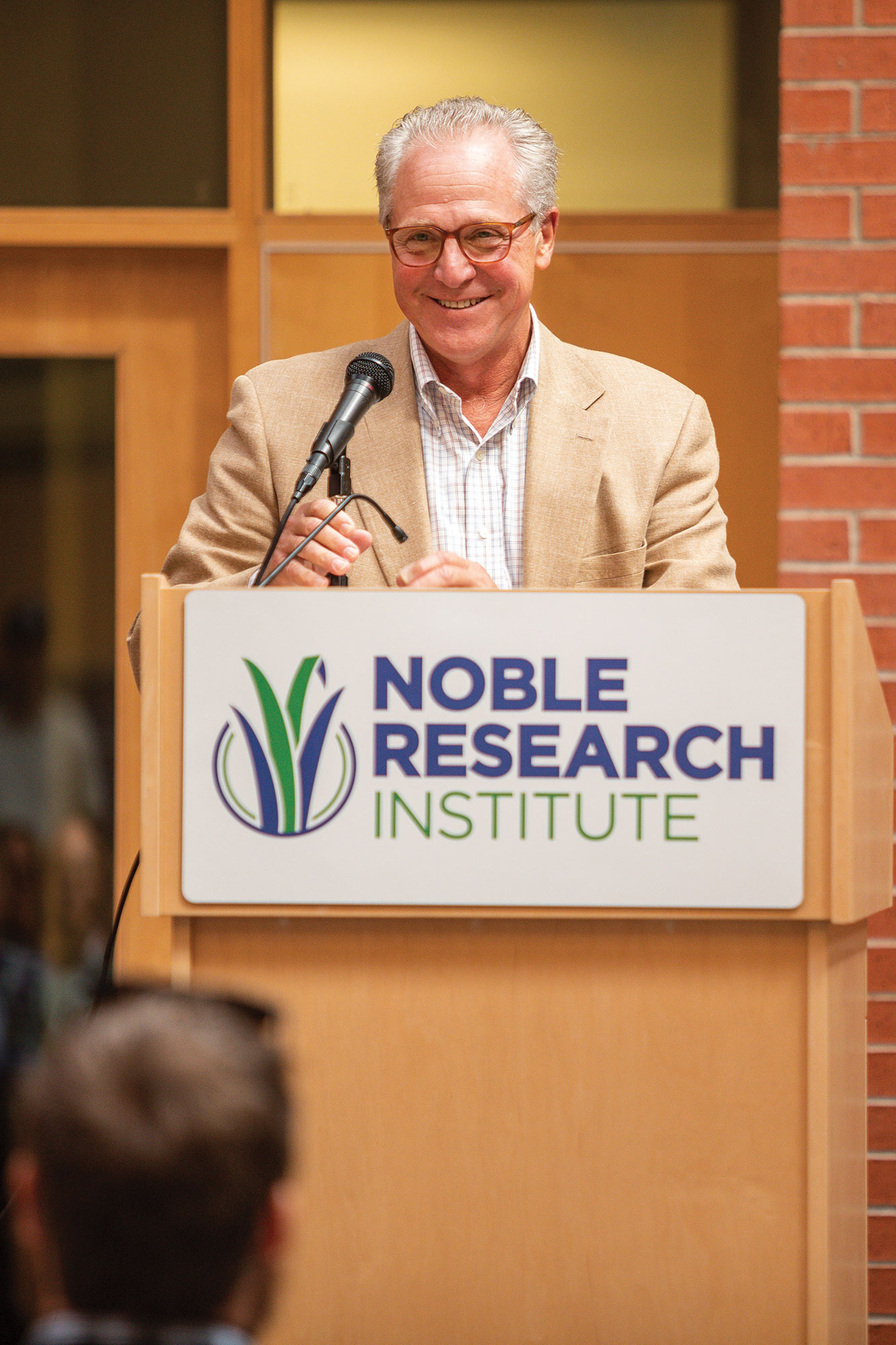
Russell “Rusty” Noble, a member of the Board of Director’s executive committee and founder Lloyd Noble’s grandson, hailed Buckner’s tireless pursuit to advance agriculture. “When you meet Bill Buckner, you know one thing for sure: he loves agriculture. He is a passionate advocate for the sector,” Noble says. “During his time as president, Bill worked tirelessly to promote soil health and create innovative new solutions that could open up more opportunities for farmers and ranchers. Everyone at Noble offers a whole-hearted thanks to Bill for all of his work.”
During Buckner’s tenure as president and CEO, Noble experienced one of its most dramatic organizational shifts in its 73-year history. Originally known as Noble Foundation, Noble separated its research and education operations from its philanthropic activities in 2017.
The organization’s research, education and consultation activities continued forward under a new name, the Noble Research Institute, LLC, and became one of the country’s first agricultural research organizations, a new type of 501(c)(3). The philanthropic activities, including grant-making and scholarship programs, of the original organization were placed in a new, private foundation, which carried the name traditionally associated with the organization’s community giving, The Samuel Roberts Noble Foundation.
The Buckner era also saw Noble expand its educational and community service efforts, dive deeper into cover crop research, establish the Land Stewardship Program, increase its national collaborations, and re-establish soil health as a core competency.
Buckner brought together farmers, ranchers, soil scientists, economists, environmental interests, agribusinesses, nongovernmental organizations and government agencies together to examine the role of soil health. Their work identified the need for a national organization to serve as a hub for measurement standards, economic data and coordinated research. Noble then launched the Soil Health Institute in 2015. The soil-focused nonprofit aims to safeguard and enhance the vitality and productivity of the soil through scientific research and advancement.
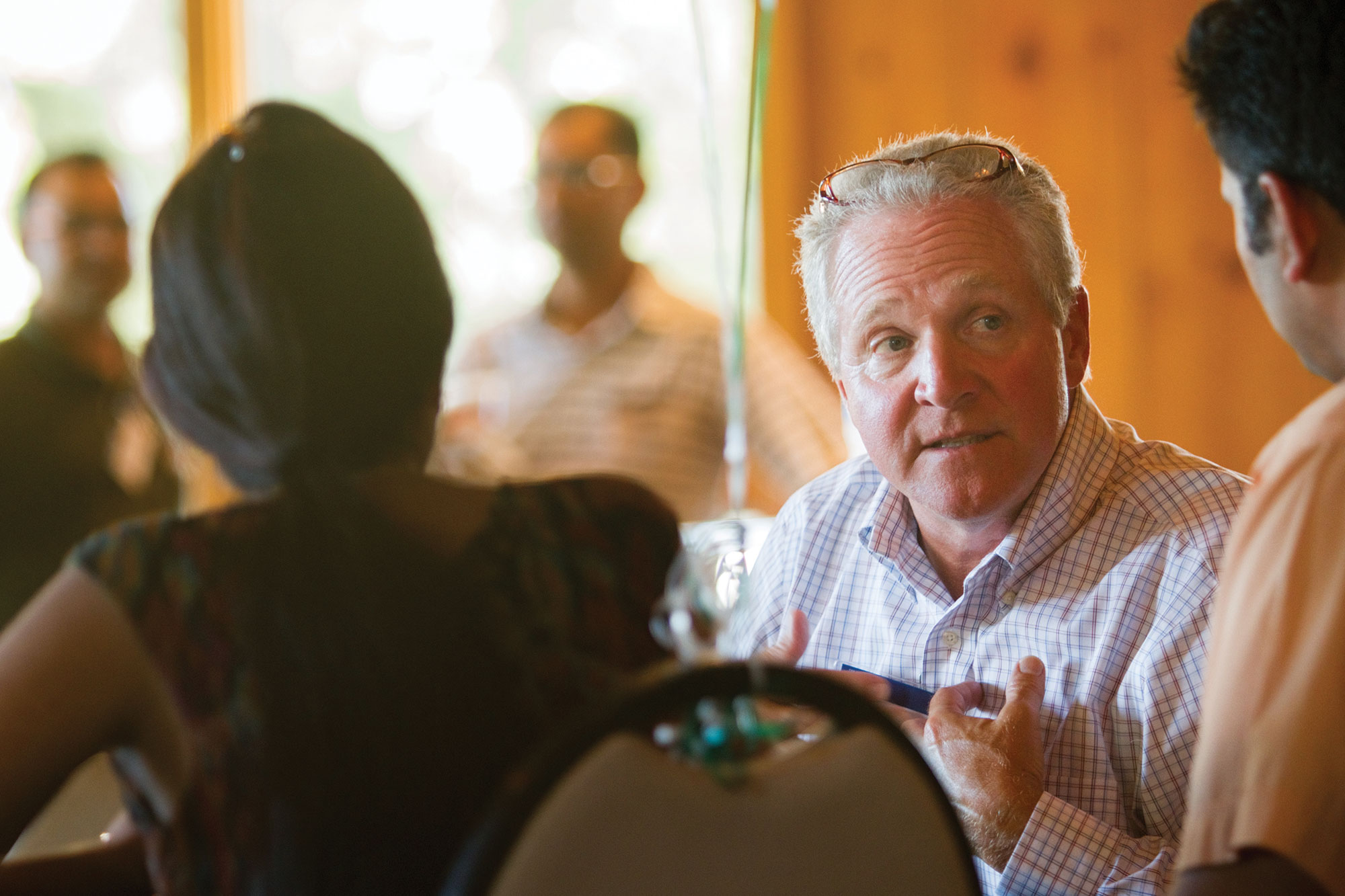
In recent years at the Noble Research Institute, Buckner has been spearheading the creation of the Ecosystem Services Market, an ambitious national effort to incentivize farmers and ranchers to improve soil health systems through a large-scale program that would finance, generate and sell ecosystem service credits from agricultural working lands.
“I am so proud of what we’ve accomplished over the past seven years,” Buckner says. “As our founder once said, ‘No individual accomplishes anything worthwhile by his effort alone.’ I know that to be true. Any success I have experienced is a direct result of the tremendous men and women I’ve worked with every day here at Noble and our collaborators across the country.”
Looking forward to 2019, Buckner anticipates spending more time with his family, especially his two grandsons, but the itch to continue advocating for agriculture has yet to subside. Interpretation: The last act of his career may have a curtain call.
On an unusually quiet fall day, Buckner returned to the black, meeting table in his office for another question-and-answer session with Legacy magazine. Seven years prior, he sat in the same chair, introducing himself and outlining his thoughts and hopes for Noble.
This time around, Buckner reflected on a tenure gone too fast, taking stock of accomplishments, musing about his wife and grandsons, and discussing opportunities that may lead to a career encore (or two).
Think back seven years ago. What drew you to Noble?
I wanted to make a difference in agriculture. I wanted to be a part of something significant. Noble was clearly that place. You could see something special was happening here. I could feel it when I took my tour, and I can still feel it now.
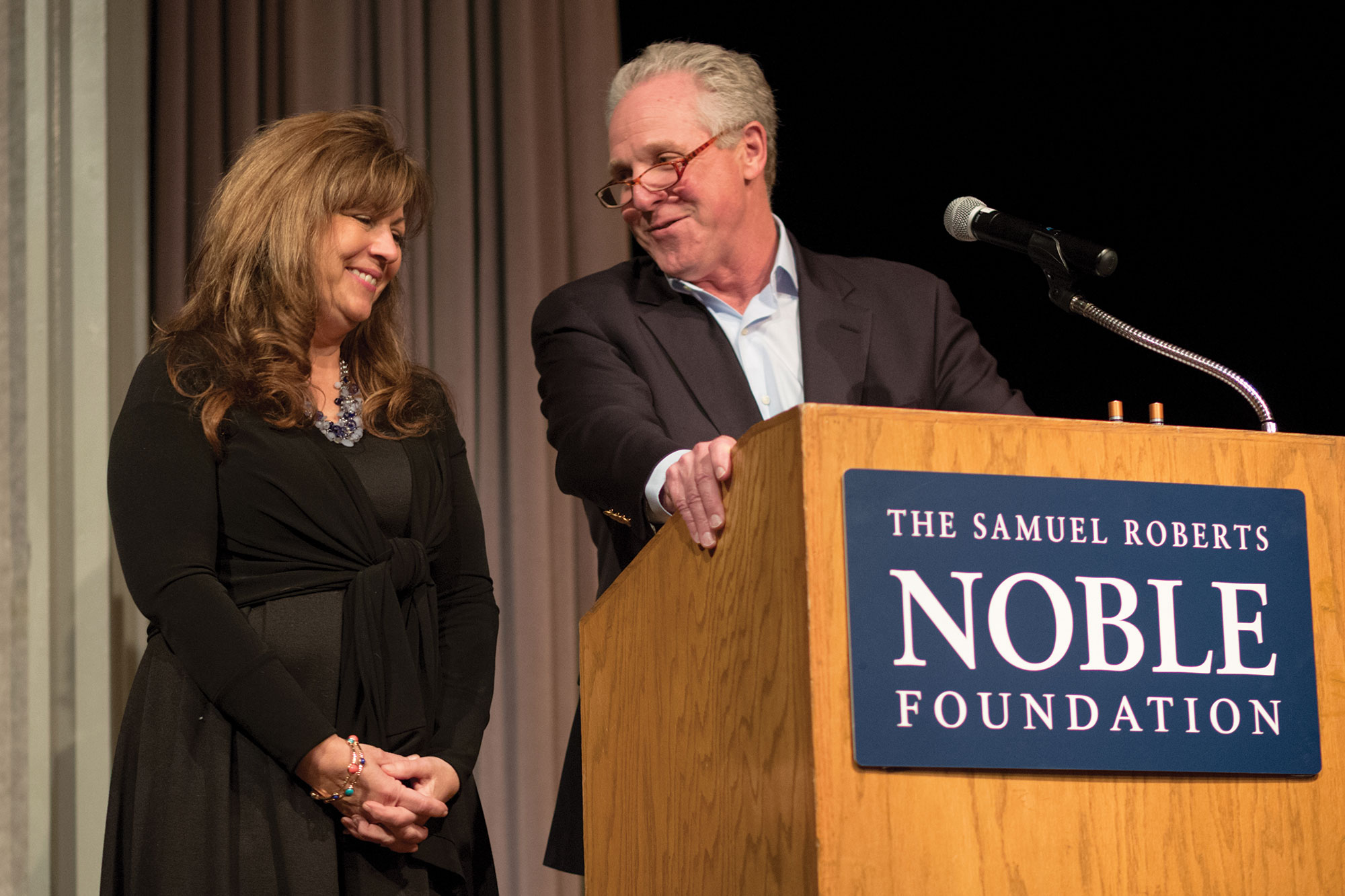
What makes Noble special in your eyes?
Our people. Our mission. Our founder’s vision. We have 380 extraordinary people from 25 different countries who have come together to pursue Lloyd Noble’s vision of providing solutions to great agricultural challenges. You can’t find this level of expertise and focus on agriculture anywhere else.
Do you still feel the same today?
More so. Noble is a once-in-a-career opportunity. When you arrive and become part of the organization, you realize you’re part of something much bigger than yourself. You’re a living legacy, and that’s exciting.
How has Noble grown and changed during your tenure?
We’ve changed in so many ways. Back when I started, we were just tiptoeing onto the national stage. Today, thanks to the hard work of our employees and Leadership Team, we’re clearly considered a national thought leader in agriculture. I also think we’re more focused as an organization. We’ve identified what great challenges we’ll pursue. We’ve honed our research efforts around these challenges. We’ve built new processes and internal collaborations that link all activities of the Institute together.
Why is Noble important to advancing agriculture?
Noble demonstrates the critical nature of private investment into agricultural research. The federal government can only do so much. Mr. Noble, our founder, lived through the Dust Bowl and established our organization in 1945 as a way of safeguarding the soil and fostering land stewardship. We need the next generation of philanthropists to follow his example and become passionate about helping solve the challenges that face agriculture.
Additionally, Noble has become the place to convene people — people from all sectors, backgrounds and philosophies — to find common ground, rally around a common goal and provide solutions that advance agriculture. We unite people and create critical strategic alliances that just would not happen without us.
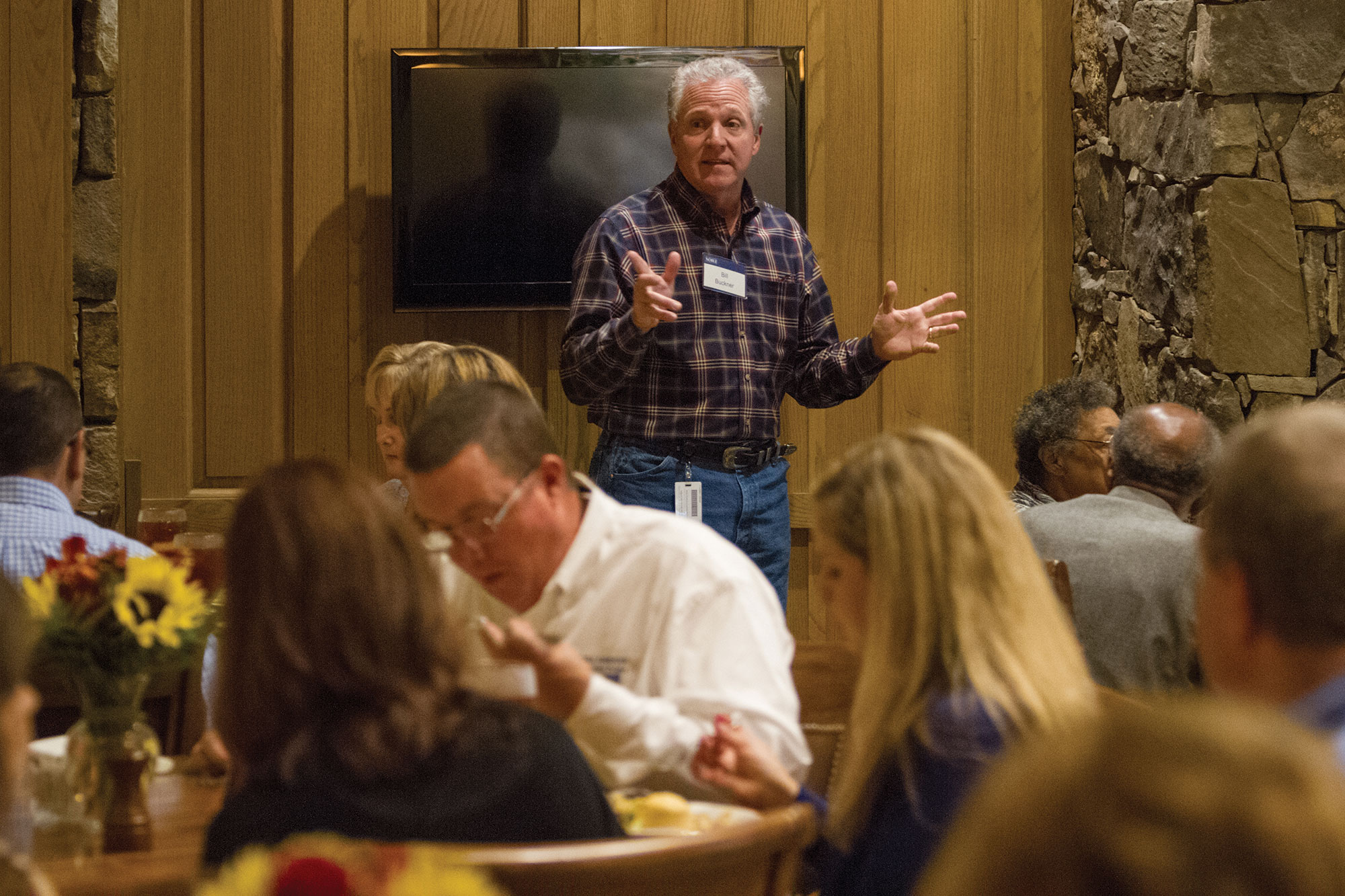
Why are these alliances important?
Our founder once said, “You can never run alone.” The challenges facing agriculture require more than any one individual or single organization can handle. We can no longer play in our silos. It is critical to form collaborations across industries to build competencies and bring in fresh perspectives. That is why Noble’s convening efforts are so critical. We are a neutral space where people can come together, set aside their differences and work toward a common goal.
How has Noble helped the agriculture industry respond to consumers?
We’re good listeners. We seek out and listen to the industry, consumers and producers. You must hear what all three sectors are saying to understand their challenges, needs and hopes. Consumers want more transparency in food production. So Noble is currently conducting a national project with four industry partners — McDonald’s, Tyson, BMG and Golden State Foods — that examines the entire value chain of the forage-based beef cattle system.
We are looking for gaps in the communication process and testing specific metrics as beef moves from one stage in the system to the next. This entire project is about transparency, traceability and improving the methods used throughout the entire process.
What is the most significant challenge facing agriculture today?
There are countless natural, economic and social challenges facing agriculture. Of course, there always has been and there always will be challenges. That’s part of being in agriculture.
However, the most significant of these challenges is a general global lack of understanding and appreciation for our soil. In the 15th century, Leonardo da Vinci said, “We know more about the movement of the celestial bodies than the soil underfoot.” More than 500 years later, this statement unfortunately remains true.
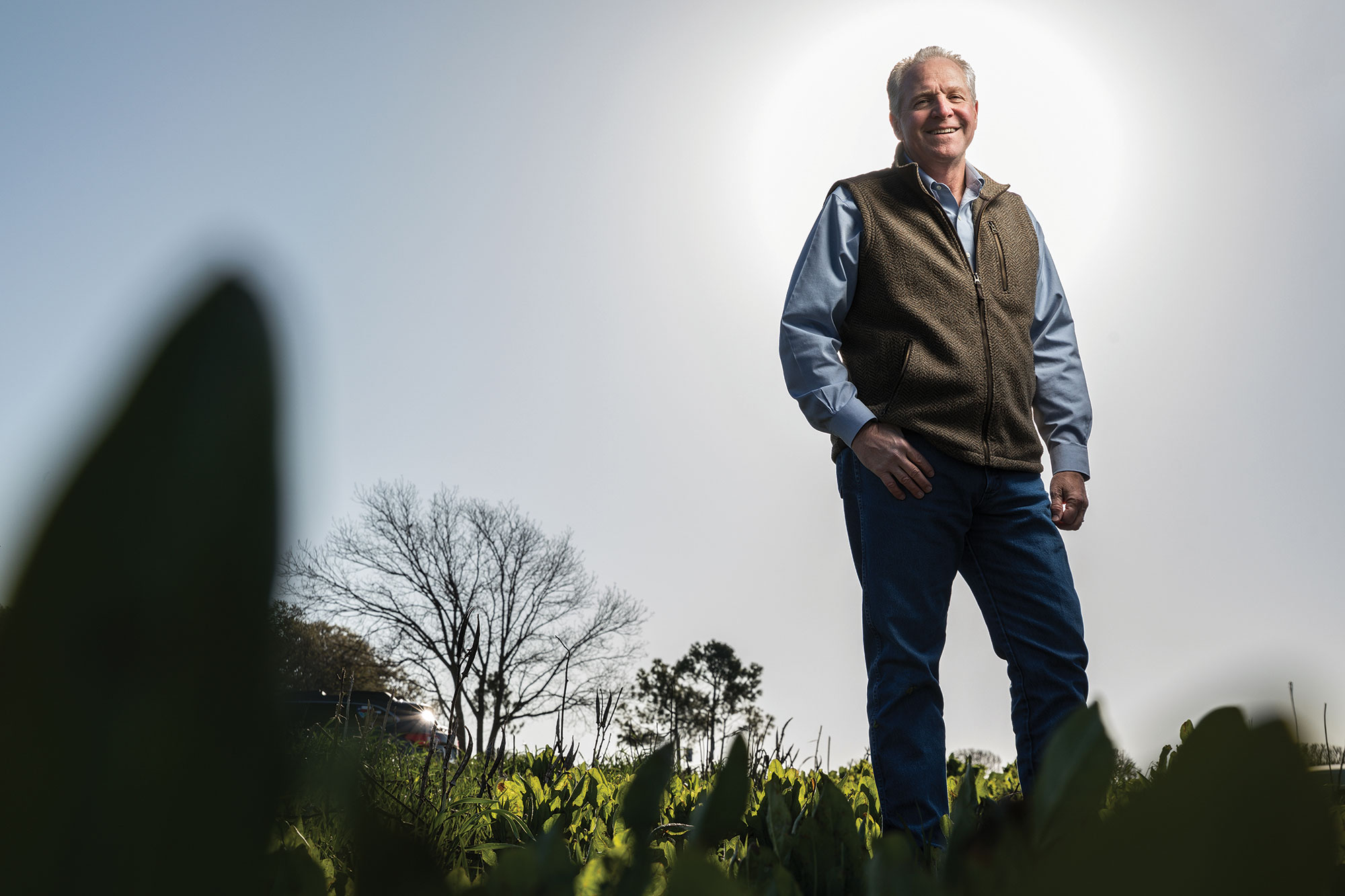
Why is soil so critical in your mind?
Three reasons: It is the foundation of our world, it’s disappearing quicker then we can imagine and it holds the answers to so many of society’s problems. According to the United Nations’ Food and Agriculture Organization, 33 percent of our world’s soils are moderately or highly degraded. Many agricultural soils have lost 30-50 percent of their precious organic carbon, thereby reducing a soil’s capacity to withstand drought, naturally suppress plant pathogens, filter chemicals, and provide nutrients to plants and to the animals that eat them (including humans). Like our founder said, “No civilization has outlived the usefulness of its soils. When the soil is destroyed, the nation is gone.”
What do you mean the soil holds answers to society’s problems?
A teaspoon of healthy soil can hold 1 billion bacteria, several thousand protozoa, and a wealth of fungi and nematodes. This biome holds the potential to provide humanity with new antibiotics, ways to effectively store large quantities of carbon (which leads to cleaner water and a more resilient planet), and the potential to use less water and synthetic inputs in food production. This is why we must all become fervent advocates of the soil.
How did the creation of the Soil Health Institute come about?
In 2013, we launched the Soil Renaissance to advance soil health and make it the cornerstone of land use management decisions. The Soil Renaissance brought together people from all walks of life and with all different perspectives and opinions to examine the role of soil health. Their work identified the need for a national organization to serve as a hub for measurement standards, economic data and coordinated research. Thus the Soil Health Institute was born.
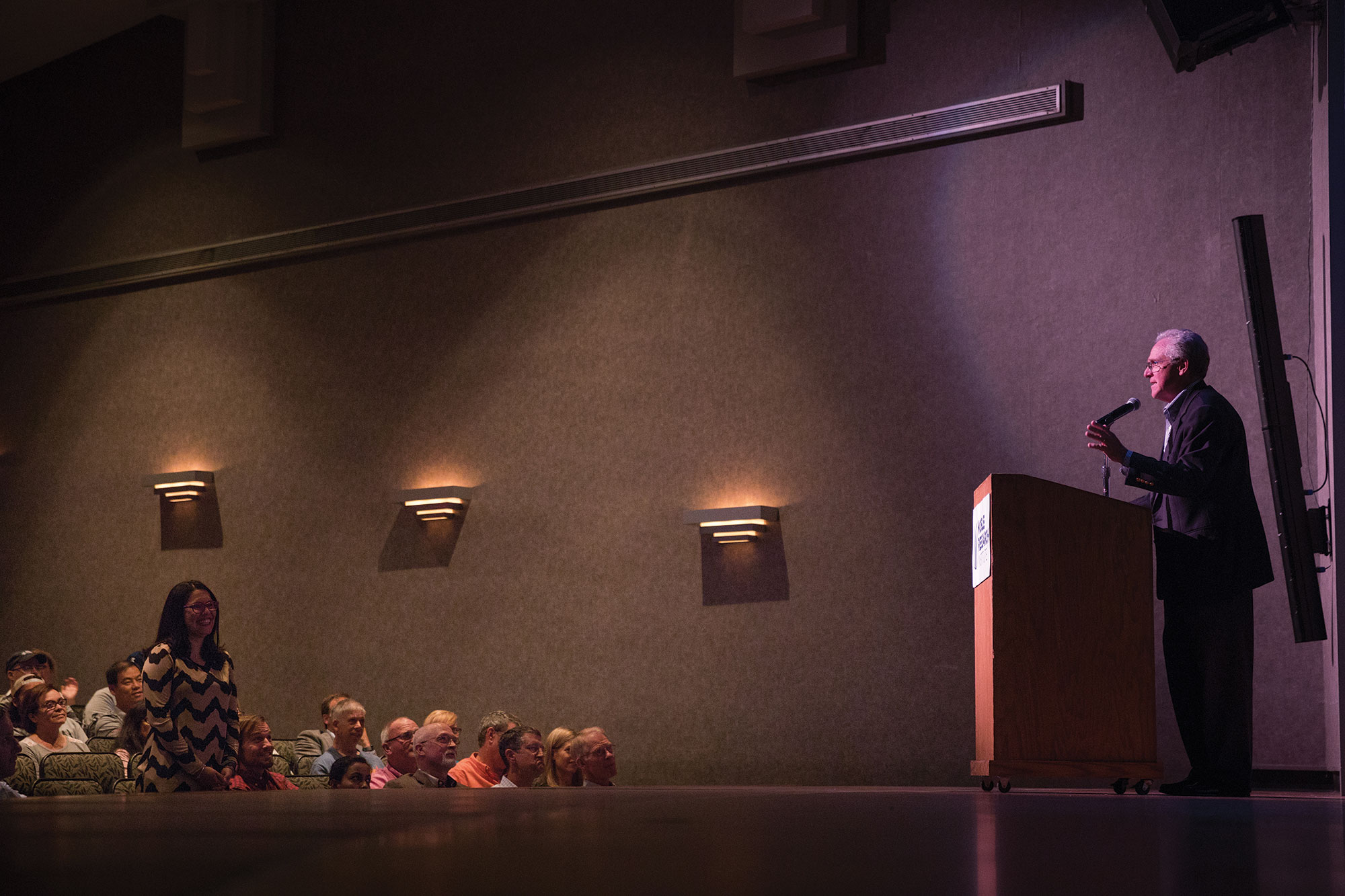
Is launching the Soil Health Institute your proudest accomplishment?
That is very difficult to answer because we’ve accomplished so much in the last seven years. I’m proud of everything we’ve done at the Noble Research Institute, and I appreciate the generosity of the Noble family to focus our efforts on serving agriculture. The Soil Health Institute was certainly a major milestone for our organization and it proved that we could think outside the box, rally around a need and actually make it happen. This was both an internal and external team effort. We proved we could work across the industry for the greater good.
There are so many other challenges facing agriculture. How do you address them all?
Like we always have — through collaboration, research, innovation and technology, and good old fashioned hard work. That’s the thing about the agriculture sector: We have faced insurmountable challenges, like the Dust Bowl, and we have found our way through.
What technologies excite you and why?
Today’s technology is redefining agriculture. UAVs, drones, sensors and precision agriculture technologies all provide farmers and ranchers with more tools and information than they’ve ever had before. More information leads to better decisions. Better decisions lead to more efficiency and improved land management. For the first time in history, we’re able to look at the entire ecosystem and make holistic decisions.
Of course, we cannot forget the lessons we have been taught. Cover cropping is a technique we learned from our grandparents and great-grandparents. Cover crops are regaining rapid acceptance worldwide because of the value they bring to protecting the soil and creating healthy soil biomes, which results in increased production and decreased need for inputs.
When we combine the best of our heritage with today’s newest innovations, we will be able to provide the world with a sustainable and safe food supply.
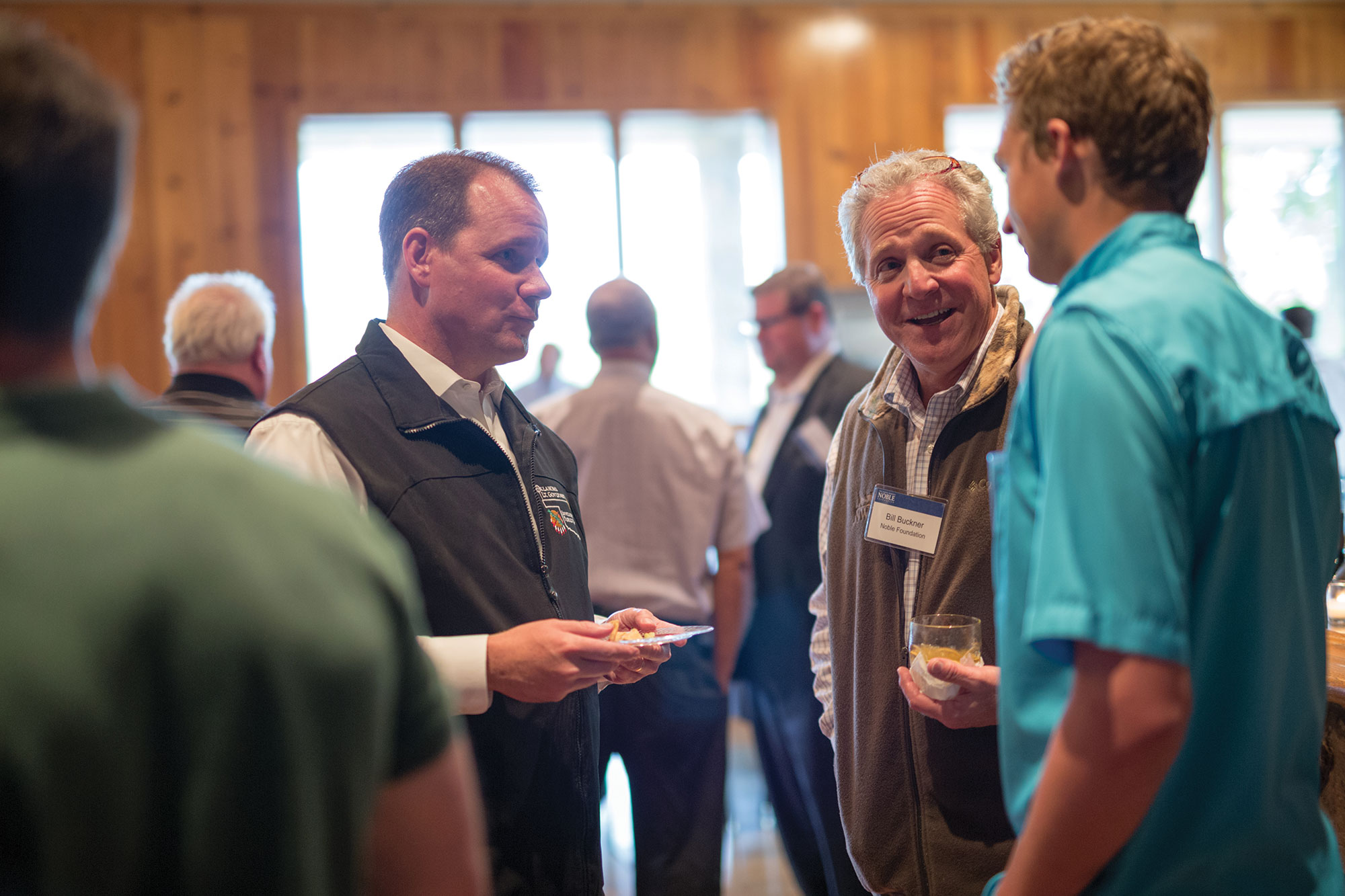
What challenges do you still see in front of Noble?
Noble can never be seduced by success. We must never rest on past accomplishments; rather, we must constantly push the boundaries forward and look for ways to improve what is already great.
Why was this the right time to retire?
There is no wrong or right time to retire. There is just an internal awareness that you’re ready to go to the next chapter of your life. For me, I’ve spent a career traveling the world. And for the past seven years, I’ve been away from my family on this grand adventure in Oklahoma. I’m ready to be home. I have a beautiful wife, four adult children, two sons-in-law and two grandsons. They are my motivation, and I want to spend as much time as I can with them.
What has been your favorite memory at Noble?
There’s no way to pick just one. All my favorite memories involve the people here at Noble. I will never forget playing softball in the rain or hashing through a challenging problem in a boardroom. I’ll always remember turkey hunting with some of our ag guys and laughing with employees at the Christmas party. I love being a part of teams, and here at Noble I’ve had the best team of my career. I will miss them all very much.
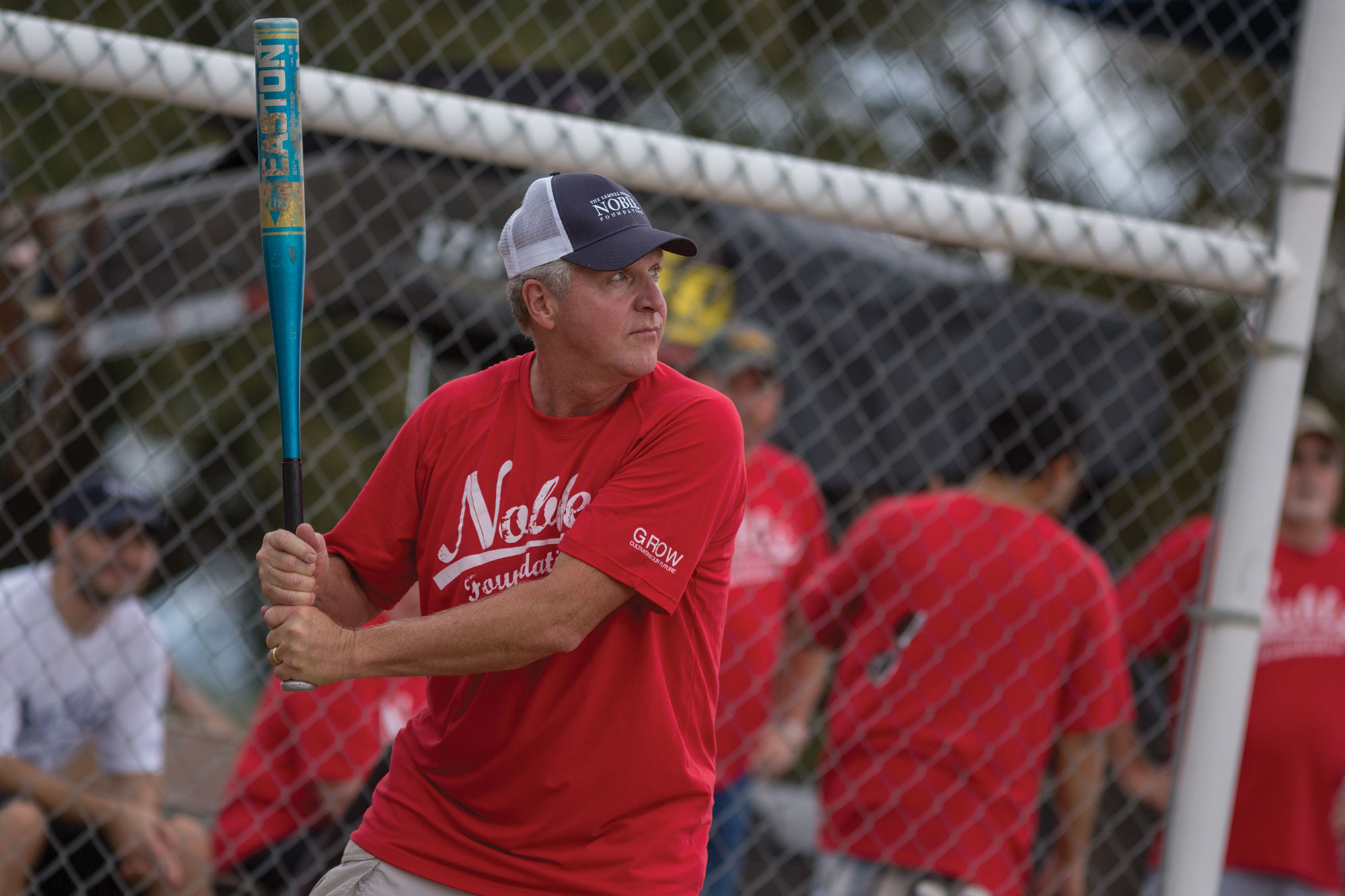
What has been your greatest lesson learned?
Patience. (He laughs.) When an idea hits, I want to get moving right then. I have always been results-driven, but my years at Noble have helped build more patience in me — somewhat. I still like to get things done. (He laughs again.)
What would you change about your time at Noble?
There are a thousand decisions that as a president you look back and see how you could have done it better, but that’s part of being a leader. You know that you can’t change the past, so you focus on the future and try to be the leader your organization deserves.
What has your time at the Institute meant to you?
Working at the Noble Research Institute has been a blessing and an honor. I’ve had the privilege to help shepherd this great organization’s legacy for seven years while working with a team of skilled, intelligent and dedicated individuals. It’s one of the highlights of my career and life.
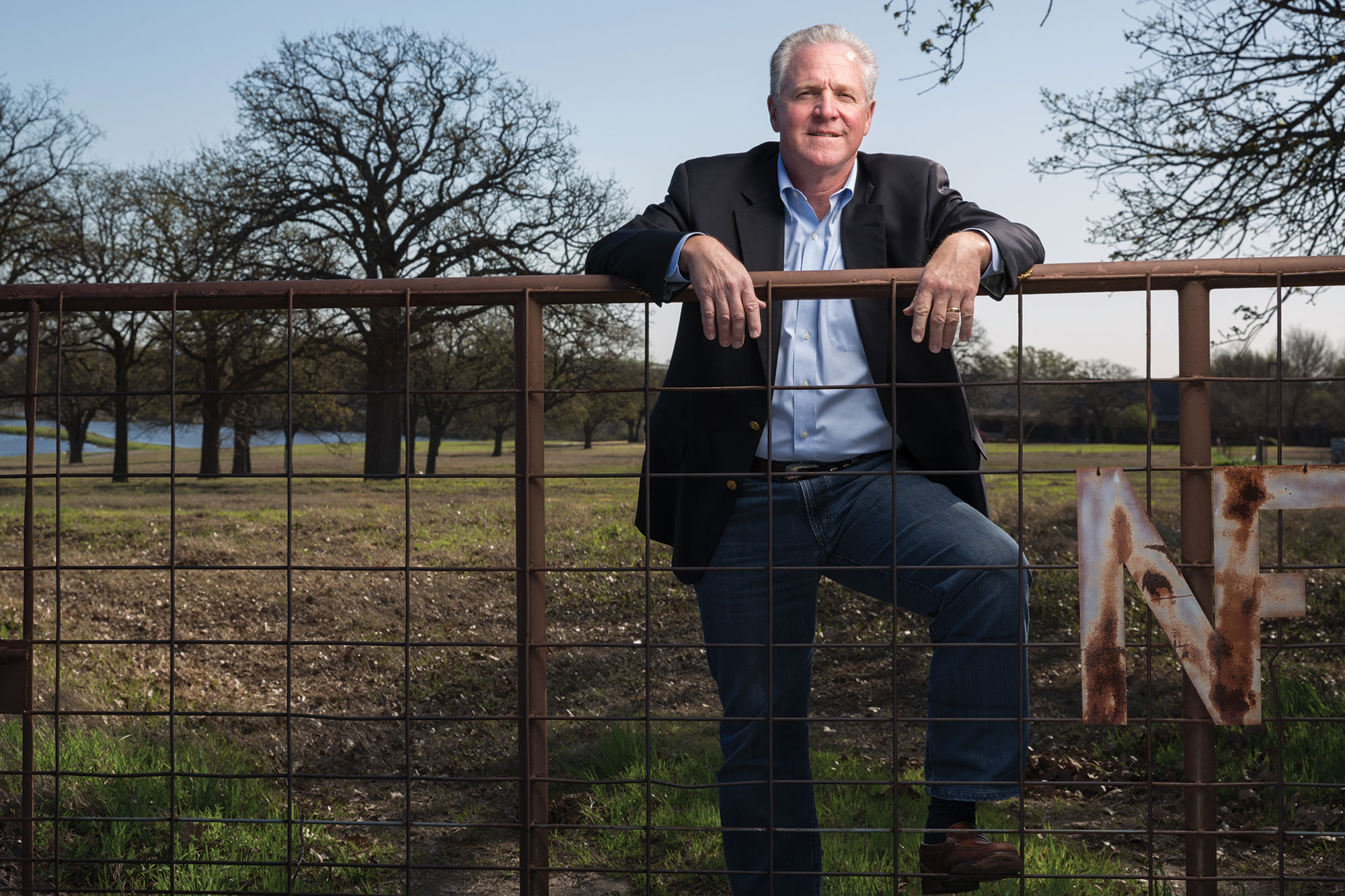
What do you hope your leadership has meant to the Institute?
I hope that I have made as big a difference in the organization as it has made in me. I came into work every day inspired by the vision of our founder, by our incredible mission and by the people who work here. As a team, we have made great strides. I am proud to be a part of everything we’ve done together, the risks we’ve taken and the projects that will continue to impact people long after we’re all gone.
What words of advice do you have for the next president?
No advice. The next president will find his or her own path and — I’m quite certain — will excel. We have a great board and amazing employees, so success is assured in my mind. I just have a friendly request: Noble is a rare and special organization, so take care of this place and these employees.
So are you really retiring?
From full-time organizational leadership? Yes. From supporting agriculture? No. There is too much left to do.
So what’s next?
The encore of my career will be spent advancing soil health through the Soil Health Institute and the various for-profit boards on which I serve.
And when you’re done with these projects will there be another encore?
I’m not sure what “done” means. I’d like for you to elaborate, but I have to get going. Too much to do!
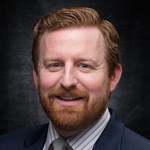

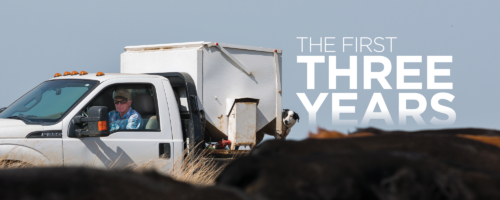
Comment